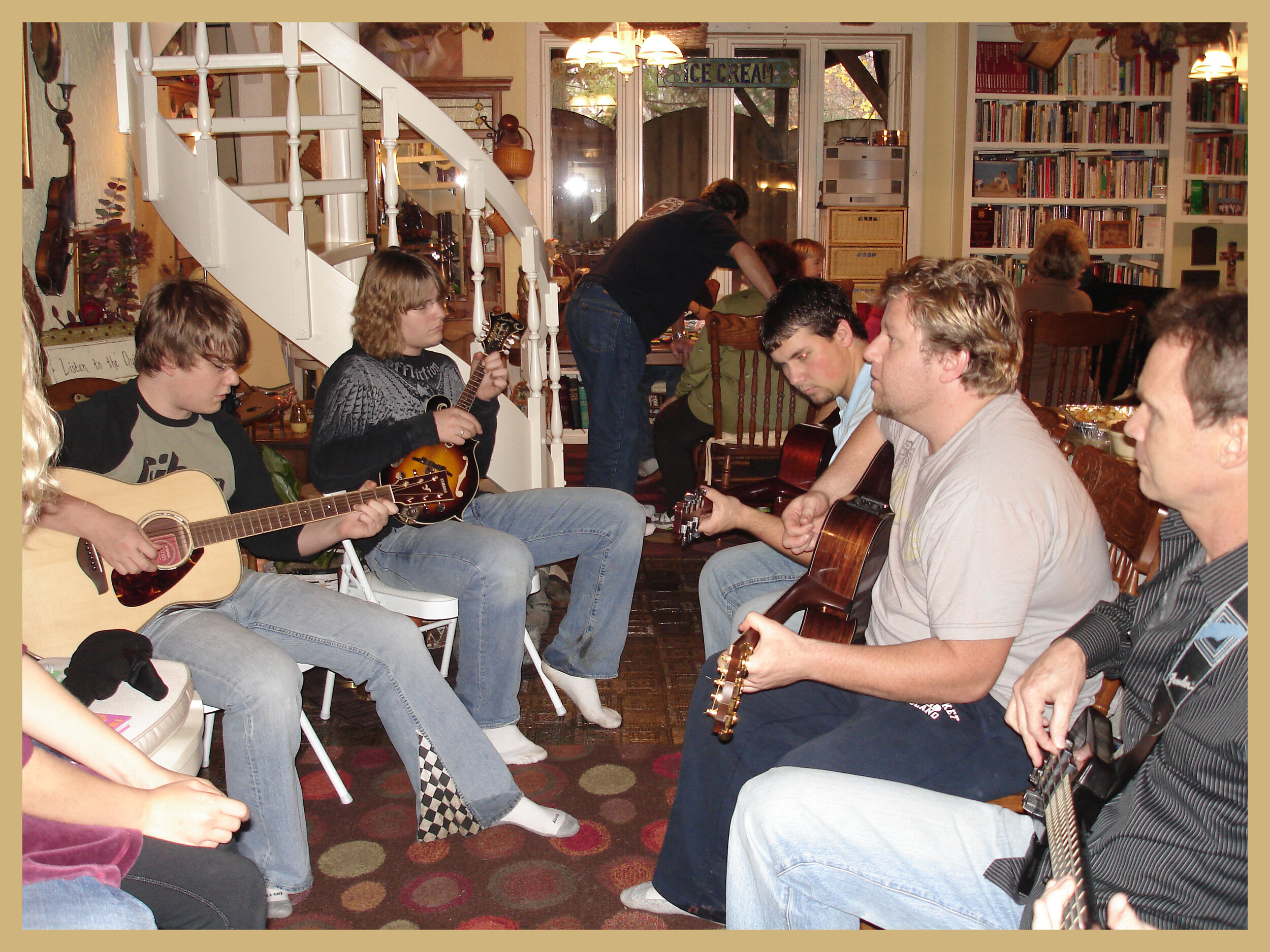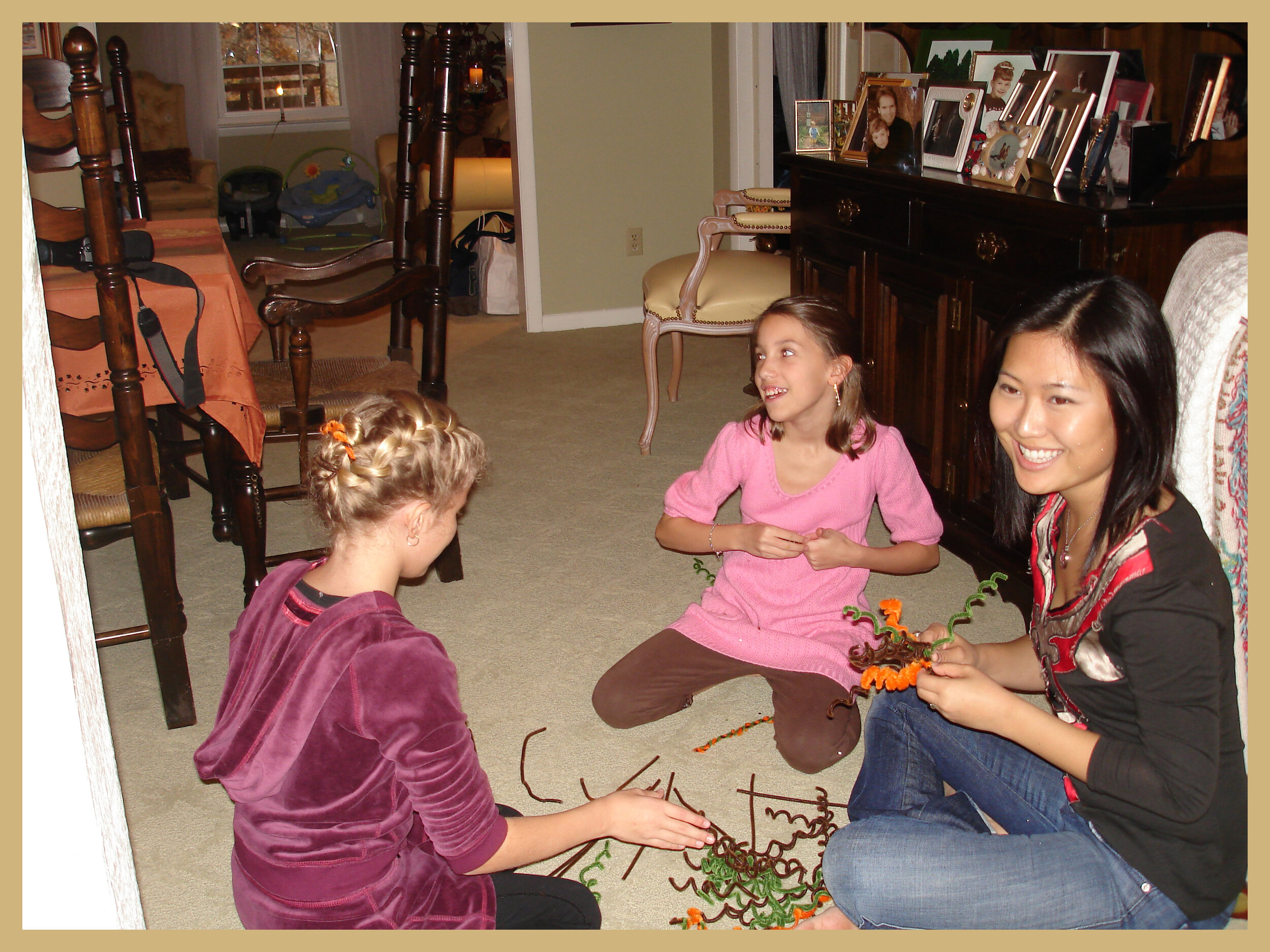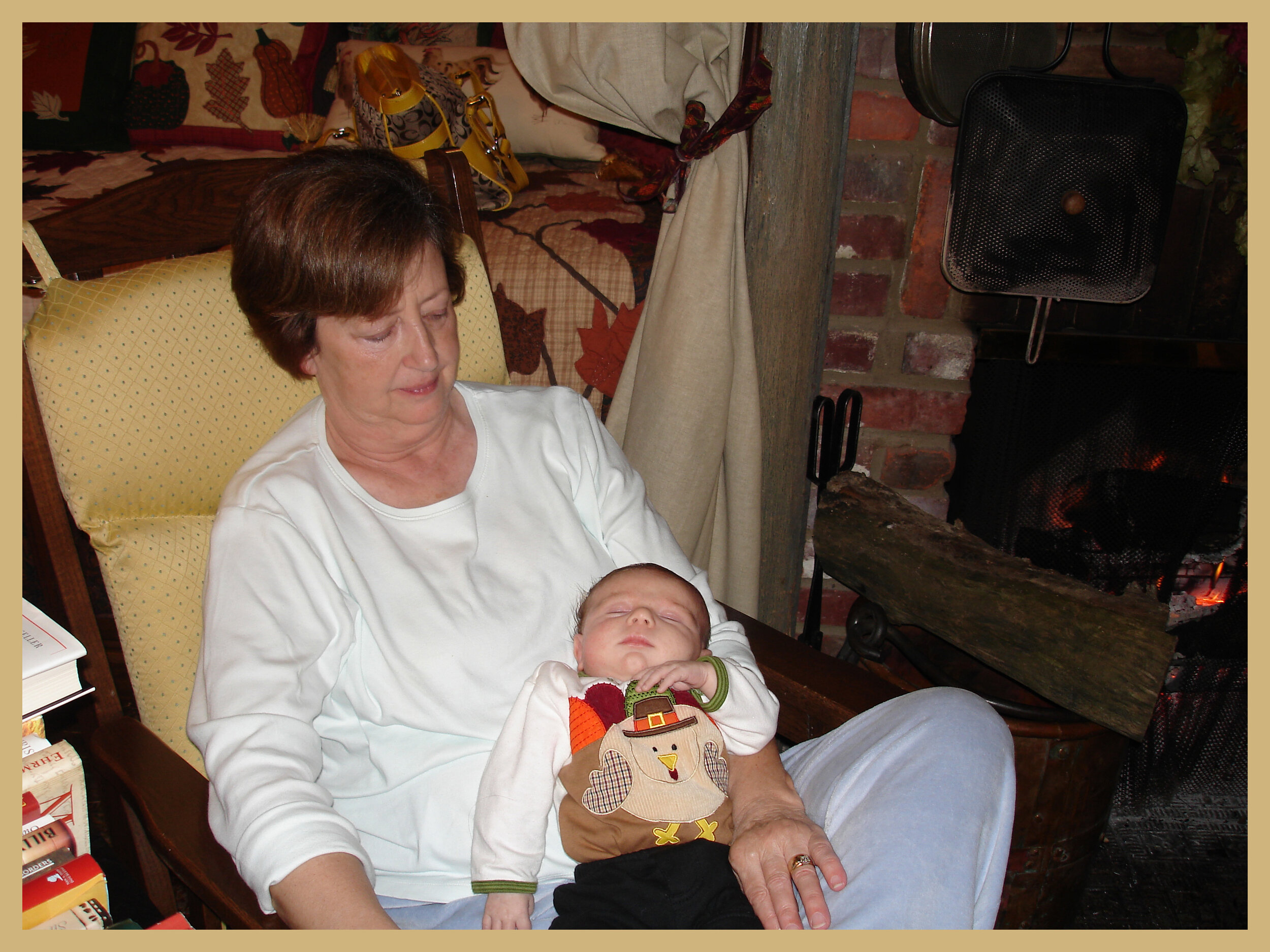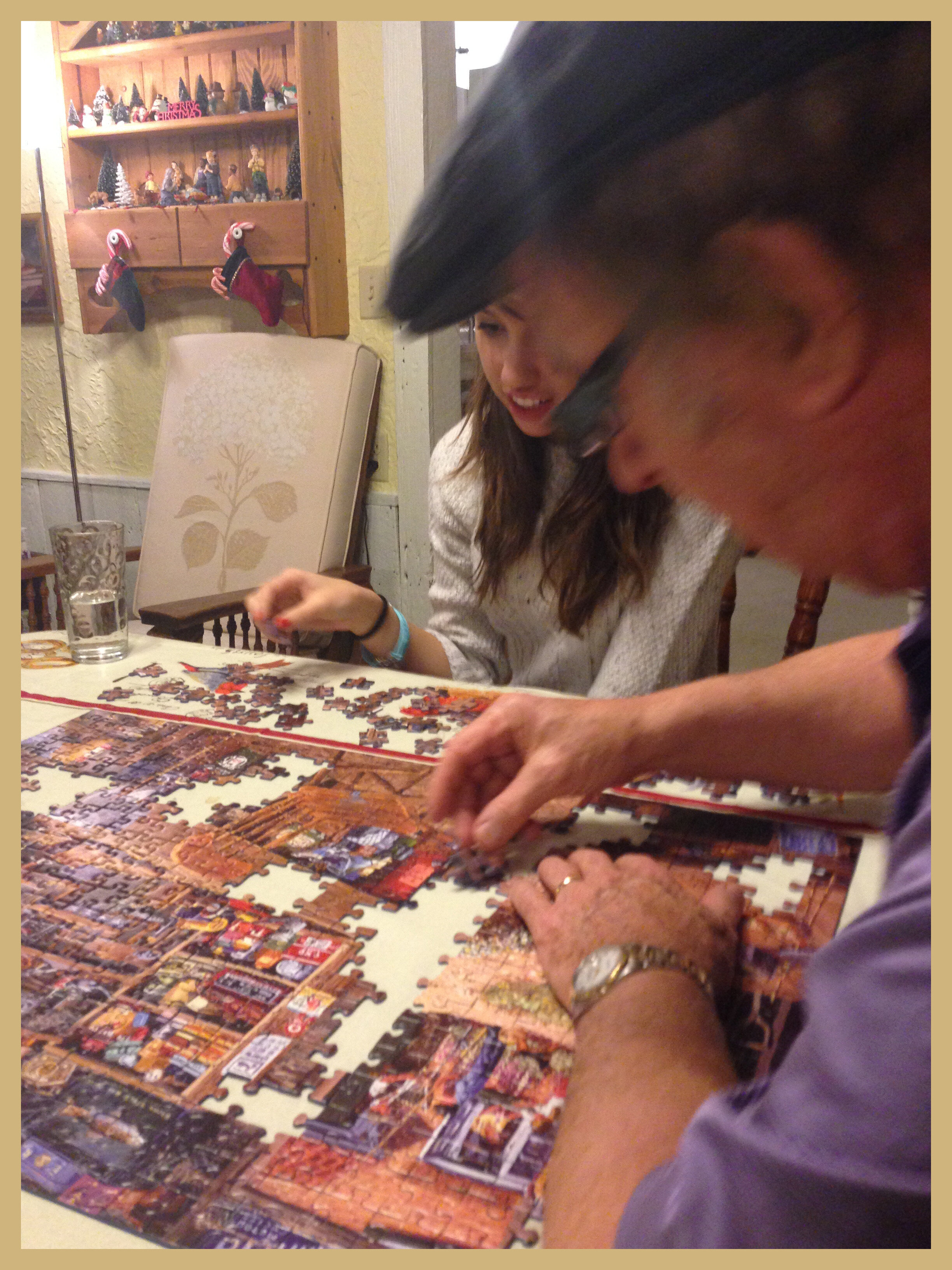I’ve been thinking a lot lately about vines and tree trunks and vineyards and orchards. I’ve been taking pictures of our old grape vine that is more than 45 years old now, and the sturdy trellis we built when it was planted to hold the branches that would tendril up to the sunshine. The vines are now putting out leaves and sprouting new branches. Come July and August these branches will hold their heavy clusters of purple grapes for making jellies and jams.
I’m watching our old orchard blossom, too. Pink cherry blossoms, white apple buds, and clusters of pear blossoms make the orchard a fantasy of color. Some of these trees are decades old; a few are just on their second season. Some of the trunks and branches can be climbed by our agile grandchildren; some are still spindly but firmly rooted. Even the newest fruit trees will be full of fruit, come late summer.
And I’m thinking that the branches and tendrils aren’t much concerned about the fruit that’s coming. The pruning of dead branches was done last fall, so opening leaves and clusters of blossoms are driven by the strong flow of sap coursing through them to do what strong branches do: produce fruit. All they need to do is stay connected.
And I’m thinking about us, about me. And about the scriptures about fruit-bearing. These verses don’t seem to imply that we can produce more and better fruit by grunting hard to get more faith or to be sure we are looking more “Christian”. I don’t think the fruit is our problem. I am coming to think that the branches are clueless about the fruit that falls off the other end of the twig—that just maybe their only concern is staying firmly attached to the source of the sweet sap that makes them so alive and sends them skyward to soak up the sun.
I am coming to realize that the only way we branches know anything about the fruit we’re producing is when someone surprisingly comes up to us, maybe seasons later, and says,
“Your patience kept me from giving up on myself when I was so discouraged.” “Who me? Patient?” we are likely to reply. Who knew?
Or maybe someone has said, “You are the kindest friend I’ve ever had. When I was so frustrated with life, you were so gentle and kind.”
Or perhaps you received a note that said: “If meekness is gentle strength, you were the epitome of meekness when I so needed someone gentle to lean on.” Or maybe when the day was gray, and you were longing for the sun, someone called to say “You bring me such joy. You can make a party out of most anything! I love that! You bring me such joy!”
So today I just want to stay connected to the trunk, plugged into the vine. Today I just think it’s enough to be in love with Jesus and the life He brings, to be totally aware of His sweet presence and bask in the knowing that I am His child. What drops off into the yard of my life is really not my problem. The fruit will take care of itself. If the fruit nourishes someone hungry, I will just be glad. Surprised, maybe, but thankful.































































































